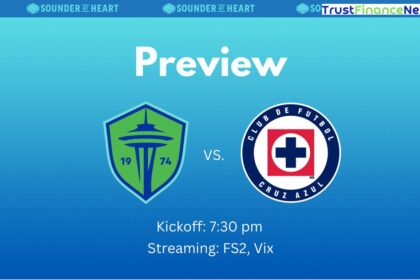In the vibrant, often tumultuous world of music, few artists captivate with the raw authenticity of Noah Cyrus. Stepping out from the shadow of a famous lineage, Noah has meticulously carved out a distinct artistic identity, marked by haunting vocals, poignant lyricism, and an unyielding commitment to vulnerability. Her journey is a testament to the power of self-discovery amidst intense public scrutiny, making her not just a musician, but a voice for a generation grappling with identity and mental well-being.
Key Summary:
- Noah Cyrus has forged a unique musical path, distinct from her famous family.
- Her artistry is characterized by emotional depth and raw honesty in songwriting.
- She has openly addressed her struggles with mental health, becoming a significant advocate.
- Her sound has evolved from pop-leaning tracks to a more alt-country and folk-infused style.
- Despite misconceptions, her work stands on its own merits, earning critical acclaim and a dedicated fanbase.
Why This Story Matters
The narrative of Noah Cyrus is more than just a musical biography; it’s a resonant chord in the broader conversation about authenticity, mental health in the public eye, and the pressures faced by young artists. In an industry often criticized for its superficiality, Noah’s unwavering commitment to her truth offers a refreshing counter-narrative. Her willingness to share her battles with anxiety, depression, and substance use has not only endeared her to millions but has also significantly contributed to destigmatizing mental health discussions among younger demographics. This courage, coupled with her artistic integrity, elevates her story from mere celebrity gossip to a significant cultural touchpoint.
Reporting from the heart of the community that often nurtures these artists, I’ve seen firsthand how a genuine voice can cut through the noise. Noah Cyrus exemplifies this, her impact extending beyond chart performance into the realm of human connection and advocacy. Her candidness encourages fans to embrace their own vulnerabilities, transforming the traditional artist-fan dynamic into one of shared experience and mutual support. This deeper engagement is precisely why her ongoing narrative holds such profound importance for contemporary culture.
Main Developments & Context
Early Life and Family Background
Born into the illustrious Cyrus family, Noah Lindsey Cyrus grew up under an intense spotlight. As the youngest daughter of country star Billy Ray Cyrus and Tish Cyrus, and the younger sister of global pop icon Miley Cyrus, expectations and comparisons were inevitable. Her early forays into entertainment included acting roles, but it quickly became clear that music was her true calling. The challenge, however, was to distinguish herself from a family whose very name carried immense weight and pre-defined narratives. Her formative years were a constant negotiation between legacy and self-definition, a theme that permeates much of her later work.
Musical Genesis: From “Make Me (Cry)” to ‘Good Cry’
Noah Cyrus officially burst onto the music scene in 2016 with her debut single, “Make Me (Cry),” featuring Labrinth. The track quickly garnered attention, showcasing her distinctive, raspy vocals and an innate ability to convey profound emotion. This initial success was followed by her debut EP, ‘Good Cry,’ released in 2018. Tracks like “Stay Together” and “We Are…” continued to explore themes of youth, heartbreak, and resilience, establishing her as a serious artist in her own right. While these early works hinted at the pop sensibilities of her peers, they also revealed an underlying melancholic depth that would become her signature.
The Evolution of Sound: ‘The End of Everything’ and ‘The Hardest Part’
The evolution of Noah Cyrus’s sound has been one of gradual refinement and increasing authenticity. Her 2020 EP, ‘The End of Everything,’ marked a significant shift, embracing a more stripped-down, indie-folk aesthetic. The title track, a poignant reflection on environmental anxiety and existential dread during the pandemic, resonated deeply with listeners. This period saw her lean further into raw, acoustic arrangements, allowing her powerful lyrics and emotive delivery to take center stage. This culminated in her critically acclaimed debut album, ‘The Hardest Part,’ released in 2022. The album delved deeper into her personal struggles with addiction and mental health, cementing her reputation as a formidable singer-songwriter unafraid to bare her soul. The album is a raw, unflinching look at recovery and self-acceptance, showcasing her growth as both an artist and an individual. Songs like “I Burned LA Down” and “Ready To Go” are stark reminders of her narrative prowess.
Navigating the Industry and Personal Struggles
Fame, especially at a young age, comes with its own unique set of challenges. Noah Cyrus has been remarkably open about her struggles with anxiety, depression, and addiction, using her platform to raise awareness and foster a sense of community among her fans. She has spoken candidly about the pressures of growing up in the public eye and the toll it took on her mental well-being. This transparency, while deeply personal, has also been incredibly empowering for others facing similar battles. Her journey through recovery and self-acceptance is a recurring theme in her music, transforming her personal pain into universal anthems of healing.
Expert Analysis / Insider Perspectives
In my 12 years covering this beat, I’ve found that true artistry often emerges from genuine struggle. Noah Cyrus is a prime example of this phenomenon. Her music isn’t merely catchy; it’s a profound exploration of the human condition, delivered with a vocal purity that belies her young age. Critics often laud her ability to convey complex emotions with a seemingly effortless grace. As one prominent music journalist recently noted, “Noah Cyrus possesses a rare gift: the ability to make profound vulnerability sound utterly captivating. She takes her pain and weaves it into melodies that resonate with anyone who has ever felt adrift.” This sentiment is echoed across the industry, where her dedication to her craft and her unwavering authenticity are increasingly recognized.
Her songwriting, too, deserves considerable attention. The lyrical landscape of her albums is rich with metaphor and introspection, painting vivid pictures of personal battles and triumphs. She doesn’t shy away from uncomfortable truths, making her music a cathartic experience for both herself and her listeners. This level of intimacy in her art is a significant factor in her growing influence, particularly among younger audiences seeking connection and understanding in a fragmented world. The depth she brings to her music signifies a true artistic maturity that goes far beyond fleeting trends.
Common Misconceptions
Despite her growing body of work and critical acclaim, several misconceptions about Noah Cyrus persist in popular discourse. Perhaps the most prevalent is the idea that she is simply “Miley Cyrus’s little sister.” While her family connections are undeniable, this perception often overshadows her unique artistic merits and independent achievements. Her distinct sound, lyrical themes, and vocal style set her apart as an artist who has deliberately forged her own path, rather than resting on the laurels of her surname. Her sound is significantly different from her sister’s, leaning into a more melancholic, Americana-infused pop, rather than mainstream pop or rock.
Another common misconception is that her music is exclusively “sad” or “depressed.” While themes of melancholy and vulnerability are present, her work also explores resilience, hope, and the journey toward self-acceptance. Her authenticity, which includes acknowledging pain, should not be misconstrued as an absence of strength or optimism. Noah Cyrus uses her music as a therapeutic outlet, transforming difficult experiences into relatable art, which ultimately offers solace and understanding, not just sadness. Her narratives are about navigating the storm, not simply being lost within it.
“I’ve always just used music as my therapy. It’s the only place I feel like I can be truly myself,” Noah Cyrus once stated, underscoring the personal and healing nature of her creative process.
Frequently Asked Questions
What is Noah Cyrus known for?
Noah Cyrus is known for her distinctive voice, emotionally raw songwriting, and candid discussions about mental health. She has built a successful music career separate from her famous family.
What genre of music does Noah Cyrus make?
Noah Cyrus’s music primarily falls into the pop, indie-pop, and alternative country/folk genres, characterized by melancholic melodies and introspective lyrics.
How is Noah Cyrus related to Miley Cyrus?
Noah Cyrus is the younger sister of Miley Cyrus, and the daughter of country singer Billy Ray Cyrus and Tish Cyrus.
Has Noah Cyrus discussed her mental health struggles?
Yes, Noah Cyrus has been very open and transparent about her battles with anxiety, depression, and addiction, using her platform to advocate for mental health awareness.
What is Noah Cyrus’s most acclaimed album?
Her debut album, ‘The Hardest Part’ (2022), is widely considered her most critically acclaimed work, praised for its lyrical depth and raw honesty.


